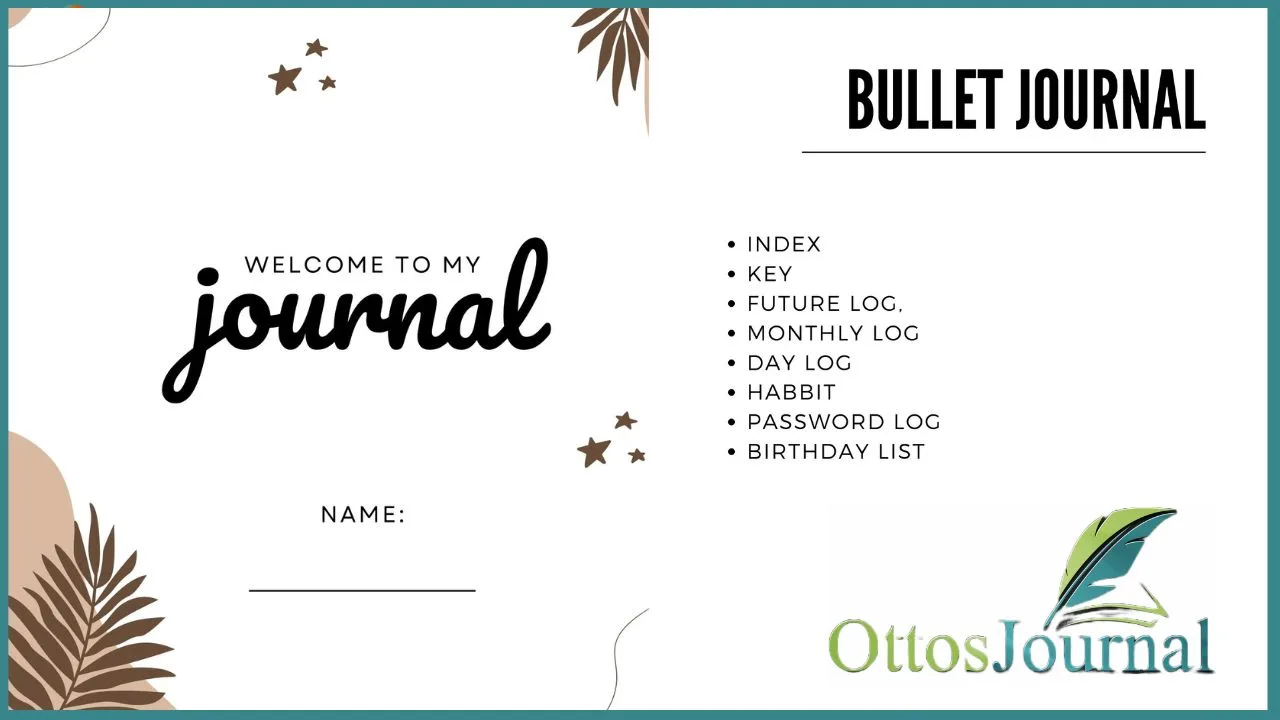Self-care is an essential aspect of maintaining overall well-being, and journaling can be a powerful tool to help individuals achieve this goal. By engaging in self-care journaling prompts, you can gain a deeper understanding of their thoughts, emotions, and behaviors, and develop strategies to improve their mental health. In this blog post I will share with you 55 self-care journaling prompts and a step by step guide on starting self-care journaling
Journaling is a form of expressive writing that can help individuals process difficult emotions, reflect on past experiences, and set goals for the future. Self-care journaling prompts are designed to encourage individuals to explore their thoughts and feelings in a safe and supportive environment. Through taking the time to reflect on your experiences, you can gain insight into their patterns of behavior and develop strategies to improve their mental health.
Getting Started with Self-Care Journaling
Self-care journaling is a valuable tool for anyone looking to improve their mental and emotional well-being. However, getting started can be overwhelming, especially if you are new to journaling. Here are some tips to help you get started:
Choosing the Right Journal
The first step in starting a self-care journaling routine is selecting the right journal. There are many different types of journals available, so it’s important to choose one that suits your needs. Some popular options include:
- Blank journals: These are great for people who want complete creative freedom in their journaling. You can write, draw, or even add stickers and other decorations.
- Guided journals: These journals come with prompts and questions to help guide your journaling. They are a great option for people who are new to journaling or who need some structure to get started.
- Digital journals: If you prefer to journal on your computer or tablet, there are many digital journaling apps available. These apps often come with prompts and other features to help you get started.
Creating a Comfortable Space
Creating a comfortable space to journal in can help you get in the right mindset for self-care journaling. Find a quiet space where you can focus and relax. You might also want to consider adding some cozy elements to your space, like a soft blanket or a scented candle.
Establishing a Routine
Establishing a routine is key to making self-care journaling a habit. Choose a time of day that works for you, whether it’s first thing in the morning or right before bed. Set aside a few minutes each day to journal, even if it’s just for a few sentences.
How to Start Self-Care Journaling

- Choose Your Journal: Pick a journal that you’re drawn to, whether for its aesthetic, size, or the way the paper feels. This should be a journal that you’re comfortable using regularly.
- Decide on a Schedule: Determine a regular time to journal that fits into your daily routine, such as first thing in the morning or right before bed.
- Define Self-Care for You: Write down what self-care means to you and the areas you want to focus on, such as physical, emotional, mental, or spiritual well-being.
- Set Intentions: At the beginning of each journaling session, set an intention for your self-care practice. This could be a specific feeling you want to cultivate or an area of your life you want to improve.
- Reflect on Your Day: Use your journal to reflect on the self-care activities you’ve done each day, how they’ve made you feel, and what you’ve learned about yourself.
- Identify Self-Care Goals: Write down your self-care goals and the steps you can take to achieve them. Break these down into manageable tasks.
- Review and Adjust: Periodically look back at your entries to assess what’s working and what isn’t, and make adjustments to your self-care plan as needed.
55 Self-Care Journaling Prompts:
- What self-care practices did I engage in today?
- How did I prioritize my mental health this week?
- What are three things I am grateful for right now?
- How can I create more balance in my life?
- What activities help me recharge?
- When do I feel most at peace?
- What are my strategies for managing stress?
- How do I feel after a good night’s sleep?
- What boundaries do I need to set for better self-care?
- How can I be more present in my daily life?
- What is a new self-care activity I’d like to try?
- How can I incorporate more movement into my day?
- What does my ideal day look like, and how can I make it a reality?
- How do I practice self-compassion?
- What are some ways I can declutter my life?
- How does spending time in nature benefit me?
- What are my favorite ways to relax?
- What are my coping mechanisms when I feel overwhelmed?
- How do I nourish my body?
- What are the things that bring me joy?
- How do I connect with others, and how does it affect my well-being?
- What are my thoughts on self-worth and self-love?
- How do I listen to my body’s needs?
- What are some affirmations that resonate with me?
- What hobbies or activities make me lose track of time?
- How do I handle difficult emotions?
- What are my goals for personal growth?
- How can I improve my sleep routine?
- What are some acts of kindness I can do for myself?
- How do I celebrate my achievements?
- What are some healthy habits I want to develop?
- How can I make self-care a more consistent part of my life?
- What are the things I do to feel grounded?
- How do I disconnect and take breaks from technology?
- What is my relationship with social media, and how does it affect me?
- How do I handle social obligations, and do they contribute to my well-being?
- What are some self-care rituals I can do at home?
- How do I maintain my emotional health?
- What are some ways I can express my creativity?
- How do I manage time for myself despite a busy schedule?
- What are my thoughts on mindfulness and meditation?
- How do I show myself love and respect?
- What are some ways I can improve my diet for better health?
- How do I deal with negative self-talk?
- What are my relaxation techniques before bed?
- How do I maintain my physical health?
- What are some self-care practices I find challenging, and why?
- How do I stay motivated to take care of myself?
- What are my go-to self-care practices when I’m feeling low?
- How do I handle loneliness or isolation?
- What are some ways I can pamper myself?
- How do I practice patience with myself?
- What are some ways I can practice self-care at work?
- How do I stay true to myself and my needs?
- What are some self-care goals for the upcoming month?
Types of Self-Care Journaling Prompts

Journaling is an effective tool for self-care, and using prompts can help individuals explore their emotions and thoughts. There are several types of self-care journaling prompts that can be used to promote reflection, reduce stress and anxiety, and increase gratitude and happiness.
Prompts for Reflection and Growth
Prompts for reflection and growth are designed to encourage individuals to explore their emotions and thoughts. These prompts can help individuals identify their strengths and weaknesses, set goals, and develop a deeper understanding of themselves. Some examples of prompts for reflection and growth include:
- What are your top three values, and how do they influence your life?
- What are your biggest fears, and how do they hold you back?
- What are your goals for the next year, and how will you achieve them?
Prompts for Stress and Anxiety
Prompts for stress and anxiety are designed to help individuals manage their emotions and reduce stress. These prompts can help individuals identify their triggers, develop coping strategies, and promote relaxation. Some examples of prompts for stress and anxiety include:
- What are your biggest stressors, and how do they impact your life?
- What are some healthy ways you can manage stress?
- What are some relaxation techniques that work for you?
Prompts for Gratitude and Happiness
Prompts for gratitude and happiness are designed to promote positive emotions and increase feelings of happiness. These prompts can help individuals focus on the good things in their lives and develop a sense of gratitude. Some examples of prompts for gratitude and happiness include:
- What are three things you are grateful for today?
- What are some positive things that happened to you this week?
- What are some things that make you happy, and how can you incorporate them into your life more often?
Self-care journaling prompts can be an effective tool for promoting reflection, reducing stress and anxiety, and increasing gratitude and happiness. By using prompts that are tailored to their needs, individuals can develop a deeper understanding of themselves and improve their overall well-being.
The Benefits of Self-Care Journaling

Self-care journaling can be a powerful tool for improving mental health, enhancing self-discovery, and strengthening resilience. By taking the time to reflect on one’s thoughts and feelings, individuals can gain a deeper understanding of themselves, their emotions, and their experiences. This can lead to a range of benefits, including improved mental well-being and greater overall life satisfaction.
Improving Mental Health
One of the primary benefits of self-care journaling is its ability to improve mental health. Research has shown that journaling can help individuals manage symptoms of depression, anxiety, and other mental health conditions. By expressing their thoughts and feelings on paper, individuals can gain a greater sense of control over their emotions and reduce feelings of stress and overwhelm.
Enhancing Self-Discovery
Self-care journaling can also be a powerful tool for enhancing self-discovery. By exploring their thoughts and feelings in a safe and private space, individuals can gain a deeper understanding of who they are and what they want out of life. This can lead to greater self-awareness, increased confidence, and a stronger sense of purpose.
Strengthening Resilience
Finally, self-care journaling can help individuals build resilience in the face of adversity. By reflecting on past experiences and identifying patterns in their thoughts and behaviors, individuals can develop a greater sense of self-efficacy and learn to bounce back from challenges more quickly. This can lead to greater overall resilience and a greater ability to cope with stress and adversity in the future.
Self-care journaling can be a powerful tool for improving mental health, enhancing self-discovery, and strengthening resilience. By taking the time to reflect on one’s thoughts and feelings, individuals can gain a deeper understanding of themselves and their experiences, leading to a range of benefits for overall well-being and life satisfaction.
Incorporating Mindfulness and Reflection

Self-care journaling is an effective way to incorporate mindfulness and reflection into one’s daily routine. Mindfulness is the practice of being present in the moment and fully engaged in one’s surroundings. Reflection, on the other hand, is the act of thinking deeply and critically about one’s experiences and emotions. When combined, these practices can help individuals gain a deeper understanding of themselves, their values, and their goals.
Mindfulness Practices
Incorporating mindfulness practices into self-care journaling can help individuals stay focused and present during their writing sessions. One effective way to do this is to begin each session with a short meditation or breathing exercise. This can help individuals clear their minds and focus their attention on the task at hand.
Another way to incorporate mindfulness into journaling is to use prompts that encourage individuals to focus on their senses and surroundings. For example, a prompt that asks individuals to describe the sights, sounds, and smells around them can help them become more aware of their surroundings and stay present in the moment.
Reflecting on Personal Values
Self-care journaling can also be a powerful tool for reflecting on personal values. By taking the time to reflect on what is most important to them, individuals can gain a deeper understanding of their priorities and goals.
One effective way to reflect on personal values is to use prompts that encourage individuals to think about what they are grateful for. By focusing on the positive aspects of their lives, individuals can gain a greater appreciation for the things that matter most to them.
Journaling as a Meditative Exercise
Finally, self-care journaling can also be a meditative exercise in and of itself. By taking the time to write down their thoughts and feelings, individuals can gain a deeper understanding of themselves and their emotions. This can help them process difficult experiences and emotions in a healthy and productive way.
To make journaling a meditative exercise, individuals can use prompts that encourage them to reflect on their emotions and experiences in a non-judgmental way. For example, a prompt that asks individuals to write about a difficult experience without judging themselves or others can help them process their emotions in a healthy and productive way.
Incorporating mindfulness and reflection into self-care journaling can be a powerful tool for personal growth and self-discovery. By using prompts that encourage individuals to stay present in the moment, reflect on their personal values, and process their emotions in a healthy way, individuals can gain a deeper understanding of themselves and their goals.

Overcoming Challenges Through Journaling
Journaling is a therapeutic practice that can help individuals address various challenges and overcome emotional fatigue. By putting pen to paper, one can gain clarity on their thoughts and emotions and develop a better understanding of their inner self. In this section, we will explore how journaling can help individuals overcome challenges related to burnout, relationships, boundaries, and past traumas.
Addressing Burnout and Emotional Fatigue
Burnout is a common challenge that many individuals face, especially those in high-stress jobs. Journaling can be an effective way to combat burnout and emotional fatigue. By taking a few minutes each day to write down their thoughts and feelings, individuals can gain a better understanding of what is causing their stress and develop strategies to manage it.
Navigating Relationships and Boundaries
Relationships can be challenging, and setting boundaries can be even more difficult. Journaling can help individuals navigate these challenges by providing a space to process their thoughts and emotions. By writing down their feelings and reflecting on their interactions with others, individuals can gain insight into their relationships and develop strategies to set healthy boundaries.
Dealing with Past Traumas
Journaling can also be a powerful tool for individuals who have experienced past traumas. By writing about their experiences and emotions, individuals can gain a better understanding of how their trauma has impacted them and develop strategies to cope with their feelings. Writing can also be a way to release pent-up emotions and process their trauma in a safe and healthy way.
Journaling is a powerful tool that can help individuals overcome a variety of challenges related to burnout, relationships, boundaries, and past traumas. By taking the time to reflect on their thoughts and emotions, individuals can gain clarity and develop strategies to manage their challenges.
Frequently Asked Questions
What are some effective daily journal prompts for improving mental health?
Journaling can be an effective tool to improve mental health. Some daily prompts that can help include writing down things you are grateful for, identifying your emotions and their triggers, reflecting on positive experiences, and setting achievable goals for the day.
How can journaling be used as a tool for self-discovery and personal growth?
Journaling can help individuals gain insight into their thoughts, feelings, and behaviors. Through self-reflection, journaling can help individuals identify patterns, recognize areas for improvement, and develop a deeper understanding of themselves.
What techniques can be incorporated into a self-healing journal?
Self-healing journals can include a variety of techniques, such as gratitude journaling, positive affirmations, and reflection on past experiences. Additionally, individuals can incorporate mindfulness practices, such as meditation or deep breathing exercises, into their journaling routine.
Can you suggest prompts that help cultivate self-love through journaling?
Journal prompts that can help cultivate self-love include writing down positive affirmations, reflecting on past accomplishments, and identifying personal strengths. Additionally, writing down things that bring joy and happiness can help individuals focus on self-care and self-love.
What are beginner-friendly journaling prompts to enhance self-awareness?
Beginner-friendly journal prompts to enhance self-awareness can include identifying personal values, reflecting on emotions and their triggers, and writing down personal goals. Additionally, individuals can reflect on past experiences and how they have influenced their current beliefs and behaviors.
How can journaling prompts assist in managing anxiety and stress?
Journaling prompts can assist in managing anxiety and stress by helping individuals identify triggers, reflect on their emotions, and develop coping strategies. Some prompts that can be helpful include writing down worries and identifying possible solutions, reflecting on positive experiences, and practicing gratitude journaling.




